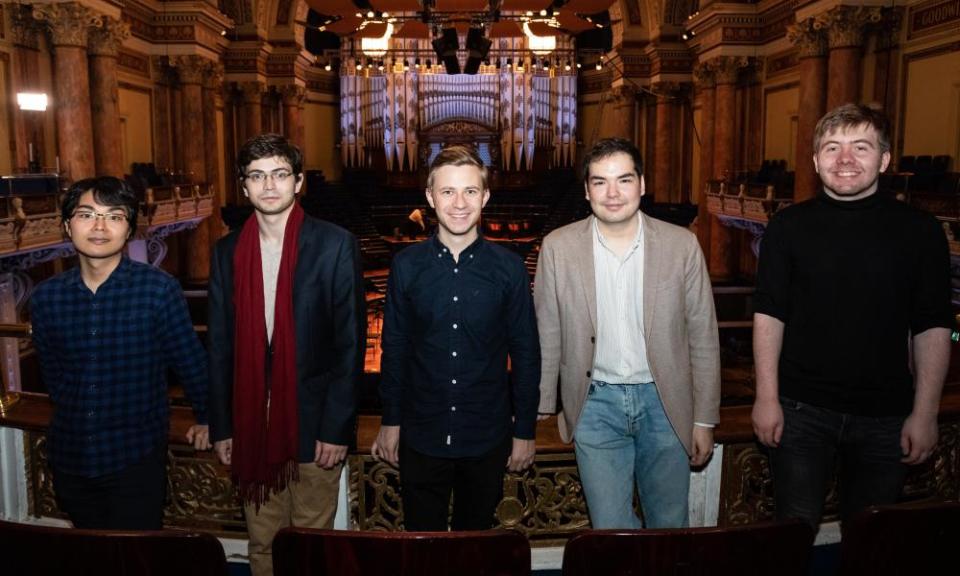Leeds piano competition finals review – Alim Beisambayev a worthy winner

Whatever one thinks of the enduring value of musical competitions, there’s no denying that they continue to thrive and even proliferate. This year’s Leeds piano competition, the 20th in its history and the first to be held since the death of its founder Fanny Waterman, fell in the middle of an autumn run of well-established events; it was preceded by the Busoni competition in Bolzano and will be followed next month by the latest edition of the most prestigious of them all, the Warsaw Chopin competition.
But the status of any musical competition depends on the calibre of its previous winners, and what they go on to achieve, and it’s many years since a pianist of genuine world class emerged as a result of winning in Leeds. At least this time there should be no arguments over whether the right person was awarded first prize. To judge by the final round of concertos at least, the 23-year-old Kazakhstan-born Alim Beisambayev, was a worthy winner, with a polish and maturity to his playing that marked him among the all-male quintet of finalists.
Of course, the jury’s decision is not based solely on the final, but takes into account performances in all the earlier rounds too, and the fact that Beisambayev also won the contemporary music prize for his group of Ligeti Studies in his semi-final recital, as well as the virtual audience award, based on votes from those who watched the streaming of the earlier rounds, suggests that his playing consistently stood out.
But a Leeds final can never be an entirely even-handed affair. With ages ranging from 22 to 28, some of the competitors had far more experience than others. For at least one of these finalists, playing his concerto with the Royal Liverpool Philharmonic conducted by Andrew Manze, was his first experience of working with a full-size professional orchestra, while others had performed with international-class bands. And it’s not easy make direct comparisons between such different works; between Beisambayev’s dashing, extrovert Rachmaninov, the Rhapsody on a Theme of Paganini, and, say, the impressively sustained performance of Brahms’s Second Piano Concerto by the Israeli Ariel Lanyi, who came third, or the fifth-placed Briton Thomas Kelly’s uneven but genuinely fresh account of Beethoven’s Fourth Concerto, all pitched on such different levels of profundity.
Kaito Kobayashi, from Japan, was placed second – more, I imagine, because of his performances in the earlier rounds (he also won the chamber-music prize) than for his rather brittle, unfocussed performance of Bartók’s Third Concerto in the final – while the Ukrainian Dmytro Choni was fourth with some rather characterless Beethoven, the Third Concerto. What can almost be taken for granted nowadays is the technical assurance of all competitors; standards were very high, and it’s worth pointing out that three of the finalists, including the eventual winner, went to the Purcell school in London, and then on to one of the capital’s music colleges. But the most valuable commodity is a real musical personality, and that can’t be taught; to judge from the final, though, Beisambyev certainly has that.
All performances available on demand on Medici.tv, and the final can be heard on BBC Sounds until 18 October.

 Yahoo News
Yahoo News 